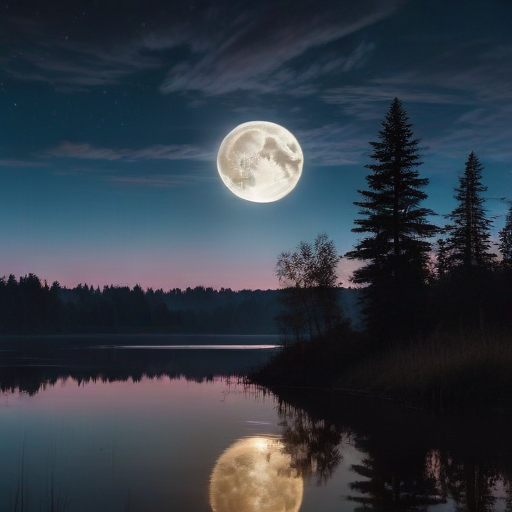Astronomy enthusiasts have a celestial event to look forward to this week with the appearance of November’s Beaver full moon, marking the fourth and final supermoon of 2024. This series of supermoons commenced in August with a unique blue moon and will not reoccur until late next year.
The term “Beaver Moon,” as cataloged by the Old Farmer’s Almanac, originates from the time of year when beavers prepare for winter by taking refuge in their lodges. Other nicknames associated with this lunar phenomenon include the Frost Moon, Freezing Moon, Digging Moon, Deer Rutting Moon, and Algonquin Whitefish Moon, reflecting the natural changes of the season.
The Beaver full moon is expected to peak on Friday, November 15, at 4:29 p.m. EST. NASA anticipates that the moon will achieve maximum illumination by Friday, shining fully with the sun illuminating 100% of its nearside. For those eager to witness this magnificent sight, no special equipment is necessary; simply looking up to the sky will suffice.
Supermoons, which occur when a full moon aligns with the point in its orbit closest to Earth, add a captivating twist to the lunar experience. This month, the Beaver Moon will be approximately 224,385 miles away from our planet, appearing significantly larger and brighter than its average counterpart. Supermoons typically appear about 16% brighter, and this November’s full moon is expected to be about 6.2% larger and 12.8% brighter than the average full moon of 2024.
Looking ahead, astronomy lovers will have to wait until October 2025 for the next series of supermoons, which will feature three events: one on October 7, followed by additional supermoons in November and December.
Overall, this will be a splendid opportunity for stargazers to appreciate the beauty of our night sky, as the Beaver Moon serves as a reminder of nature’s cycles and the changing seasons. Observing such astronomical events can inspire wonder and fascination about the universe, encouraging more people to engage with astronomy and the importance of preserving our night sky.
